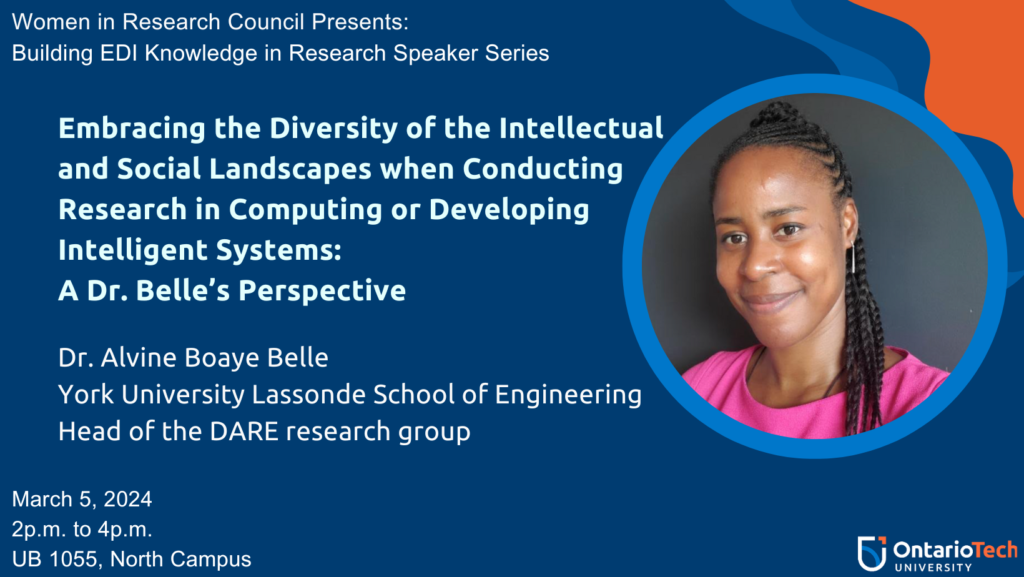


Event
Alvine Boaye Belle presents at UB 1055, North Campus, OntarioTech University.
Talk description: Digital discrimination occurs when intelligent systems make automated decisions based on specific individual attributes (e.g., income, education, gender, and ethnicity) or when relying on biased data engineering practices. This may reinforce social inequities by supporting the automation of consequential and sometimes unfair decisions that may be made by such systems and which may have an adverse impact on credit scores, insurance payouts, and even health evaluations, just to name a few. One of the root causes of digital discrimination is the lack of representativity of some cultural groups in the computing sector. That lack of representativity is notably due to the scarcity of some cultural groups (e.g., Black people) in computing undergraduate programs. Another issue that plagues the computing sector is that researchers from some developing countries, female researchers and/or researchers belonging to minoritized groups seem to be significantly less cited than other researchers belonging to dominant groups. Often same efforts, same intellectual abilities but less visibility (e.g., sometimes 50-75% less citations/paper acceptance). This is notably due to effects such as the “Matthew Effect” (tendency to cite prestigious scientists), and “Matilda Effect” (tendency for women to receive less recognition because they are women). This may have an adverse impact on recruitment, hiring, promotion, awards, etc. So, how, as computing professionals should we approach and/or address such discrimination issues to make sure the systems we develop and the research we carry out sufficiently reflect the intellectual and social diversity within computing fields and beyond?
